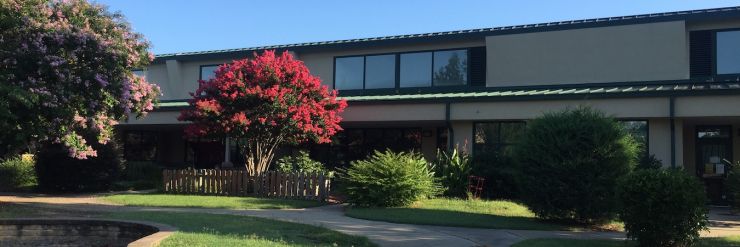


The mission of Sterling Montessori is to create a diverse educational community, grounded in the Montessori philosophy and teaching practices, that fosters curiosity, creativity, and critical thinking in its students. We strive to empower each student to become life-long learners who respect themselves, others and their environment.

SPECIAL EDUCATION
Sterling Montessori provides special education and related services by following Federal guidelines in the Individuals with Disabilities Education Act (IDEA) and North Carolina Education with Disability, Article 9. These guidelines ensure that each student with a disability is entitled to a free, appropriate public education through an individualized education plan in the least restrictive environment. For more information, please contact our Director of Exceptional Children program.
PROJECT CHILD FIND
Under the IDEA Child Find mandate, all school districts including Charter schools must identify, locate, and evaluate all children with disabilities, regardless of the severity of their disabilities. After identifying children who may need services, all necessary evaluations must be completed on these children, at no cost to parents. Sterling Montessori Academy participates in Child Find Process. Child Find posters and leaflets are posted at the main entry ways and hallways.
CODE OF CONDUCT AND DISCIPLINE
Sterling Montessori uses a “Pyramid of Intervention” as its discipline model. When children receive positive, non-violent, and empathetic guidance from adults, they develop good self-concepts, problem-solving abilities, and self-discipline. This intervention model is developed based on this belief. This tiered model is developed to support the needs of every student with disability.
A student with disability may go through this model and can be removed from his or her current educational placement. A student may be removed for up to ten days in one school year from his or her current educational placement. Based on each individual situation, Sterling takes a team approach in the decision to removal of student either to a different setting or for in-school and out-of-school suspension. When a student with disability is removed for more than ten days, the IEP team meets and ensures continuum of services. An individualized approach is taken to address the student’s needs, such as when necessary team meets to develop behavior intervention plan and/or manifestation determination meeting to support student’s behavior needs.
TRANSFERS OF EXCEPTIONAL CHILDREN
Sterling Montessori Academy receives students with IEPs from Out-Of-State and In-State schools every year, and services to these students are offered immediately.
IN-STATE with a current IEP
When a Student with a disability who had an IEP in effect at a previous school transfers to Sterling Montessori, we, in accordance to the parents, provide FAPE to the student including services comparable to those described in the student’s IEP from the past school, until we can adopt the student’s IEP or develop, adopt, and implement a new IEP that meets the needs of the individual student.
OUT-OF-STATE with a current IEP
When students transfer from another State, Sterling provides special educations services that are comparable to that student’s current IEP, until the team meets to conduct an evaluation process to develop/adopt/revise the IEP to meets the compliance requirement.
DISPUTE RESOLUTION
Facilitation
In order to support the needs of each student with a disability and to develop a compliant IEP, effective communication between home and school is essential. An impartial facilitator can be requested to assist with this process, especially during an IEP meeting.
Mediation
Parents/guardians or the school have the right to request the Department of Public Instruction to provide mediation services if the parents and the school are unable to agree upon the identification, evaluation, educational program, placement or the provision of a free, appropriate public education of a student.
Formal Written Complaints
When informal means for solving disagreements are not successful, more formal dispute resolution alternatives are available through the provisions of federal and state laws governing special education [the Individuals with Disabilities Education Act (IDEA) and Article 9 of Chapter 115C of the North Carolina General Statutes].
More information on informal and formal dispute resolution is available at the NC Department of Public Instruction.
Additional Web Resources:
http://ec.ncpublicschools.gov/
www.ecac-parentcenter.org/
http://ldanc.org
http://www.wrightslaw.com/